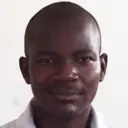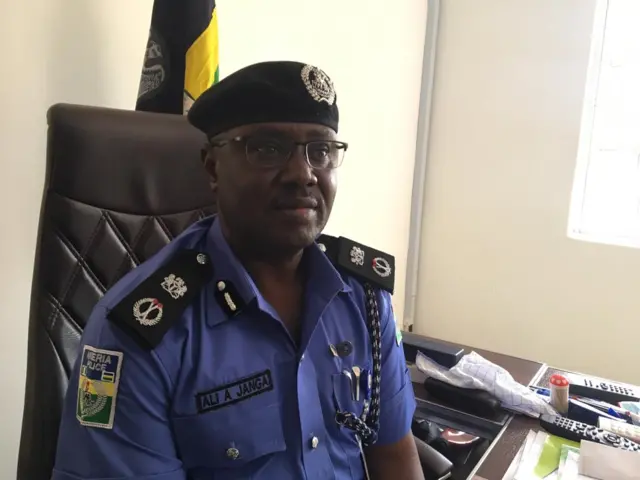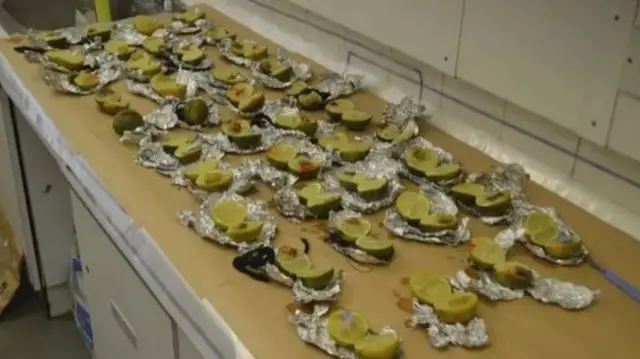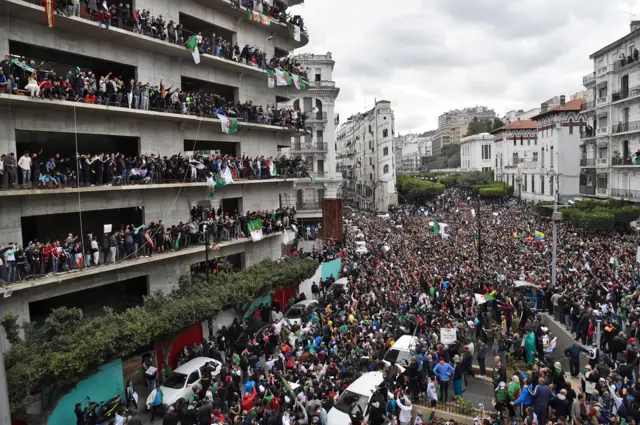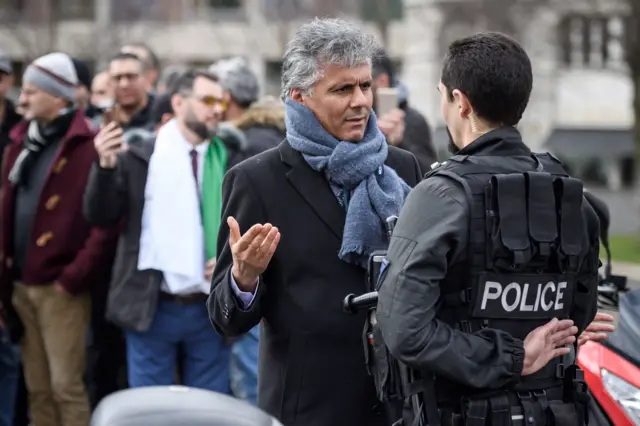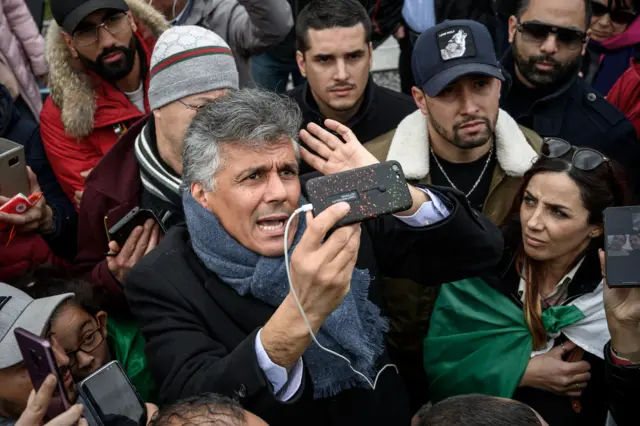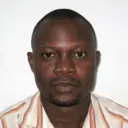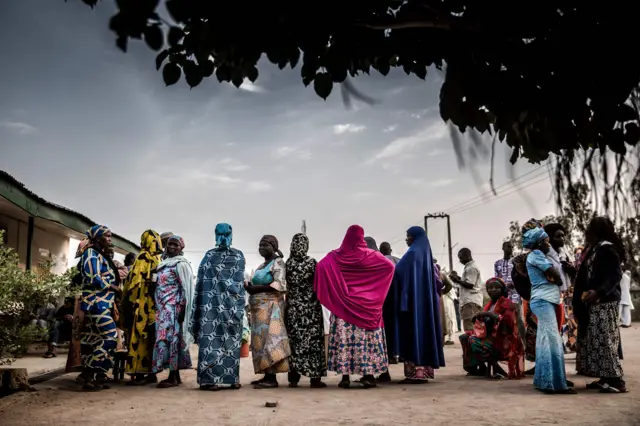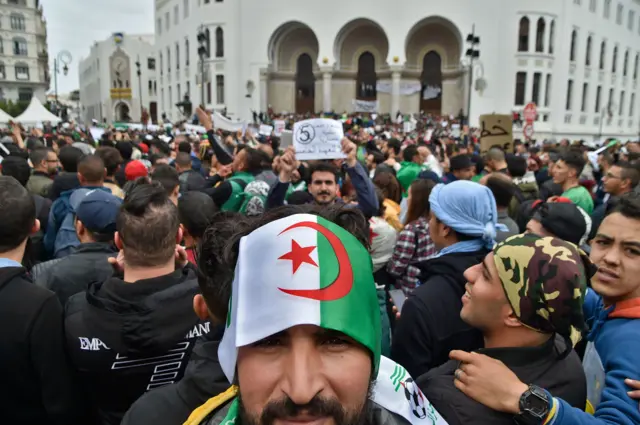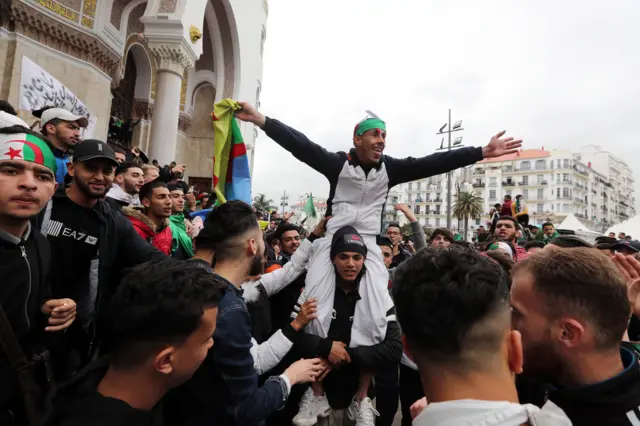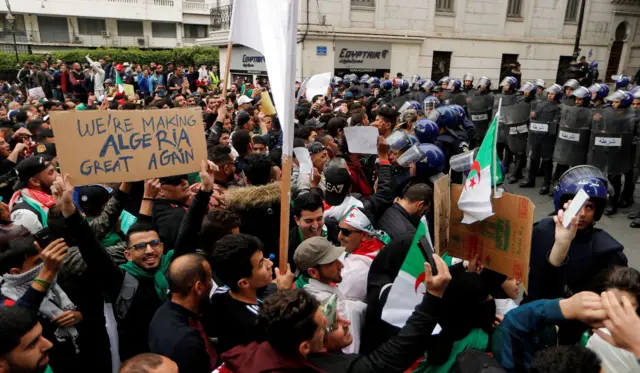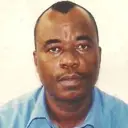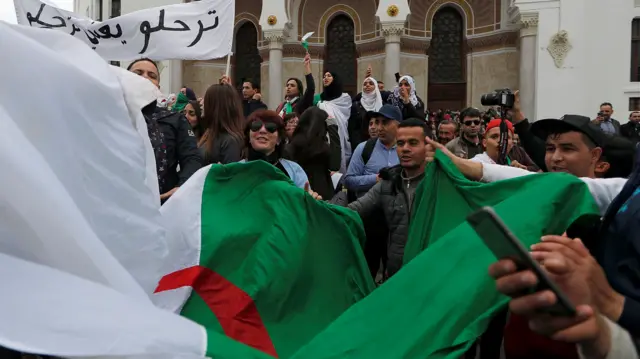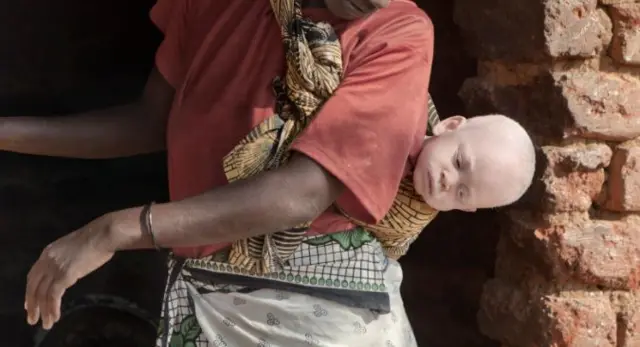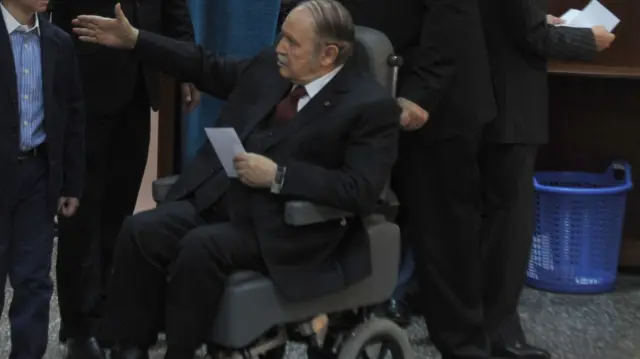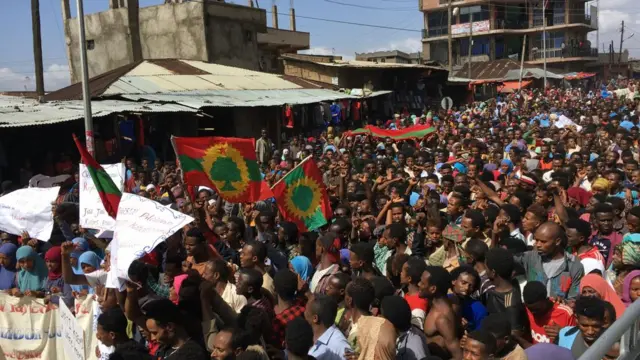Scroll down for this week's storiespublished at 18:08 GMT 8 March 2019
We’ll be back next week
That's all from BBC Africa Live for now. Keep up-to-date with what's happening across the continent by listening to the Africa Today podcast check the BBC News website.
A reminder of today's wise words:
Quote MessageA bird cannot fly with one wing.
Sent by Mumbo Mnzala Kazi, Mombasa, Kenya.
Click here and scroll to the bottom to send us your African proverbs.
And we leave you with this picture of a crowned sifaka, an endangered type of lemur from Madagascar. It's one of our favourite photos this week.
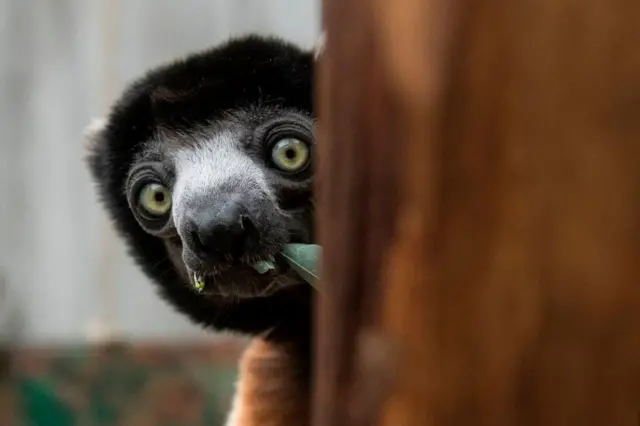 Image source, AFP
Image source, AFP